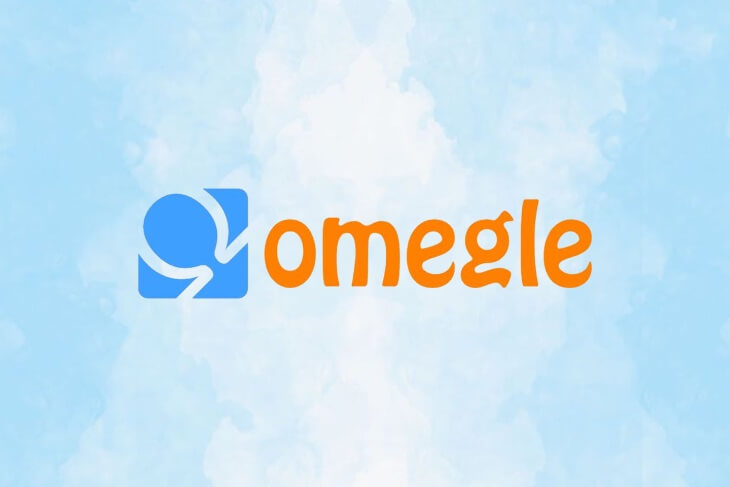Omegle, an online chat website, revolutionized the way people interacted online by offering anonymous text and video chatting with strangers. Launched in 2009 by an 18-year-old Leif K-Brooks, the platform became an instant hit, especially among teenagers and young adults, for its unique approach to online social interaction. However, despite its popularity and the positive experiences of many users, Omegle was not without its dark side. This article explores the rise, controversies, and eventual shutdown of Omegle, drawing insights from both primary resources and user-provided content.
The Genesis of Omegle
Leif K-Brooks introduced Omegle as a novel way to meet new people online. Brooks, inspired by his own positive experiences of engaging with diverse people on the internet, designed Omegle to facilitate spontaneous interactions in a global virtual village. Users were randomly paired in one-on-one chat sessions, offering an unfiltered and unpredictable social experience. The platform’s allure lay in its simplicity and the thrill of the unknown – you never knew who you might meet next.
Omegle quickly gained traction, attracting millions of users worldwide. According to data from website analytics firm Semrush, the site garnered around 73 million visitors per month, with significant user bases in India, the United States, the United Kingdom, Mexico, and Australia. For many teenagers, Omegle was a rite of passage, a digital playground where they could explore different cultures, seek advice, or simply alleviate loneliness.
The Positive Aspects of Omegle
For many users, Omegle provided a platform to forge meaningful connections. The anonymity of the site allowed individuals to discuss personal issues, seek advice, and share experiences without the fear of judgment. Stories of friendships, and even romantic relationships, that began on Omegle are plentiful. Some users credit the platform for helping them overcome social anxiety, providing a safe space to practice conversational skills and engage with people from diverse backgrounds.
Brooks himself emphasized the intrinsic safety benefits of the internet in his open letter, stating that the anonymity provided by Omegle served as a shield, allowing users to interact freely without physical risks. This sentiment resonated with many users, who saw Omegle as a gateway to a larger, more vibrant world.
The Dark Side of Omegle
Despite its positive aspects, Omegle’s unmoderated nature soon became a breeding ground for misuse and abuse. The platform’s anonymity, while a source of freedom for many, also attracted predators and malicious individuals. Reports of sexual and predatory behavior on the site became increasingly common, with the platform being mentioned in numerous cases against paedophiles across various countries.
A landmark case that brought significant negative attention to Omegle involved a young American woman suing the platform for allegedly pairing her with a paedophile when she was a minor. This case, filed ten years after the incident in November 2021, highlighted the severe risks associated with unmoderated online interactions.
The BBC’s investigation into Omegle uncovered alarming instances of explicit content involving minors, prompting schools, police forces, and governments in countries like the UK, US, France, Norway, Canada, and Australia to issue warnings about the platform. The investigation found that Omegle had been mentioned in dozens of cases against paedophiles, further tarnishing its reputation.
The Struggles of Moderation and Safety
Omegle’s creator, Leif K-Brooks, maintained that the platform implemented significant moderation measures, including state-of-the-art AI and a team of human moderators. However, these efforts were often seen as insufficient given the scale of misuse. Critics argued that Omegle’s moderation was inadequate, and the platform’s reliance on users to report inappropriate behavior was not effective.
The platform’s controversial nature led to its banning on various other platforms, such as TikTok, after a BBC investigation in 2021 found children exposing themselves to strangers on Omegle. Despite Brooks’ claims of robust moderation, the platform’s structure and lack of stringent age verification made it difficult to prevent minors from accessing inappropriate content.
The Closure of Omegle
On November 2023, after 14 years of operation, Omegle shut down following numerous abuse claims and ongoing legal battles. In an open letter on the Omegle home screen, Brooks cited the unsustainable financial and psychological burden of running the platform and fighting its misuse as reasons for its closure. He acknowledged the stress and expense of the ongoing battle to maintain the platform and expressed concerns about the future of internet freedoms.
The announcement of Omegle’s closure marked the end of an era for many who had grown up with the platform. While some mourned the loss of a unique social tool, others saw it as a necessary step towards creating a safer online environment.
10 Best Omegle Alternatives for 2025

The closure of Omegle marked the end of an era for many who enjoyed spontaneous, anonymous online interactions. However, the demand for such platforms remains strong, and numerous alternatives have emerged to fill the void. Here, we explore ten best video chat platforms that offer similar experiences to Omegle, each with unique features and varying levels of moderation.
1. HIYAK: Modern Safety and Spontaneity
HIYAK is a contemporary chat platform designed with user safety in mind. It aims to provide a secure environment for users to meet and interact with strangers.
- User Verification: HIYAK employs a robust verification system to ensure users are genuine, which helps in minimizing the presence of fake profiles and potential predators.
- Moderation: The platform utilizes both AI and human moderators to monitor interactions, providing a safer experience.
- Interest Matching: Users can specify their interests, allowing them to be paired with others who share similar hobbies or topics.
While HIYAK’s emphasis on safety is commendable, it might require more personal information for verification, which could deter some users. Despite its relatively smaller user base, it offers a secure alternative for those seeking meaningful connections.
2. EmeraldChat: Building a Friendly Community
EmeraldChat is designed to create a positive and welcoming community, offering multiple chat modes and a unique karma system to encourage respectful behavior.
- Karma System: Users earn points for positive interactions, which promotes a friendly atmosphere.
- Group Chats: Allows users to join or create group discussions based on shared interests.
- Profile Customization: Users can create detailed profiles to better express their personalities and preferences.
EmeraldChat’s user-friendly interface and community focus make it a standout option. However, the requirement for registration may deter those seeking complete anonymity.
3. OmeTV: Simplicity and Accessibility
OmeTV offers a straightforward approach to video chatting, similar to Omegle, but with improved moderation and user controls.
- Instant Connection: Facilitates quick and easy video connections with strangers.
- Mobile Compatibility: Available as a mobile app for convenient, on-the-go chatting.
- Moderation: Employs automated and manual moderation to filter inappropriate content.
OmeTV’s simplicity and ease of use, combined with effective moderation, make it a popular choice. However, the presence of ads can be intrusive for free users.
4. ChatRandom: Versatile Chat Modes
ChatRandom provides various chat modes, including random video chat, group chat, and gender-specific options, catering to diverse user preferences.
- Random Video Chat: Connects users randomly for spontaneous video conversations.
- Gender Filter: Allows users to filter connections by gender.
- Group Chat: Enables users to participate in group discussions.
ChatRandom’s versatility is appealing, but some features require a premium subscription, and moderation can be inconsistent.
5. Paltalk: Structured and Moderated Interactions
Paltalk is a comprehensive chat platform offering text, voice, and video chat rooms, catering to users looking for more structured and moderated environments.
- Chat Rooms: Hosts thousands of public chat rooms on various topics.
- Private Messaging: Allows for one-on-one conversations.
- Media Sharing: Users can share photos, videos, and other media.
Paltalk’s extensive variety of chat rooms and strong moderation are its key strengths. However, its complex interface and premium membership requirements for some features may be drawbacks for some users.
6. ChatVille: Social Gaming Meets Video Chat
ChatVille combines video chatting with social gaming, offering a unique twist for users looking for more interactive experiences.
- Video Chat: Facilitates random video chats with users worldwide.
- Social Games: Interactive games to play during chats.
- Profile Badges: Earn badges for participation and achievements.
The integration of social gaming makes ChatVille engaging and fun, though it may not appeal to users seeking purely chat-focused interactions.
7. Bazoocam: Reliable and Moderated
Bazoocam is one of the older Omegle alternatives, offering random video chat with a focus on moderation to prevent inappropriate behavior.
- Random Video Chat: Connects users for random video conversations.
- Moderation: Active moderation to ensure user safety.
- Games: Simple games to play during chats.
Bazoocam’s long-standing presence and reliable user base are advantages, but its interface is somewhat outdated, and it offers limited advanced features.
8. ChatSpin: Filters and Fun
ChatSpin offers a variety of video chat options, including random chat and filters to find users based on specific criteria.
- Random Video Chat: Connects users randomly for video conversations.
- Filters: Options to filter users by location and interests.
- Face Masks: Fun AR face masks for video chats.
ChatSpin’s engaging features and user-friendly interface are appealing, though some features require a premium subscription, and moderation can be hit or miss.
9. Shagle: Quality and Privacy
Shagle is a popular video chat platform known for its high-quality connections and focus on user privacy.
- Random Video Chat: Facilitates quick and easy connections with strangers.
- Gender and Location Filters: Allows users to filter connections by gender and location.
- Virtual Gifts: Users can send virtual gifts during chats.
Shagle’s emphasis on high-quality video and user privacy makes it a strong contender, but premium features are behind a subscription paywall.
10. LivU: Interactive and Social
LivU blends video chatting with social networking features, creating a more interactive and engaging user experience.
- Random Video Chat: Connects users randomly for video conversations.
- Matchmaking: Advanced algorithms to match users based on preferences.
- Beauty Filters: AR filters to enhance video appearance.
LivU’s combination of video chat and social networking elements is appealing, though registration is required, which might deter some users. Additionally, some features are behind a paywall.
The Legacy of Omegle
Omegle’s closure has sparked debates about the balance between online freedom and safety. Brooks and his supporters argue that the shutdown is indicative of a broader trend towards restricting internet freedoms, while critics see it as a necessary move to protect vulnerable users. The platform’s demise highlights the challenges of moderating online spaces and the ongoing struggle to create safe digital environments.
Despite its controversies, Omegle’s legacy as a pioneering social platform cannot be overlooked. It provided millions of users with the opportunity to connect with strangers from around the world, fostering a sense of global community. For better or worse, Omegle will be remembered as a significant chapter in the history of the internet, illustrating both the potential and the pitfalls of anonymous online interaction.
Conclusion
Omegle’s story is a complex one, reflecting the dual nature of the internet as a space for both connection and conflict. While the platform offered countless positive experiences for its users, its unmoderated nature ultimately led to its downfall. The closure of Omegle serves as a reminder of the importance of balancing freedom and safety in online spaces and the ongoing need for robust moderation to protect users from harm. As the internet continues to evolve, the lessons learned from Omegle will undoubtedly inform the future of online social platforms.

